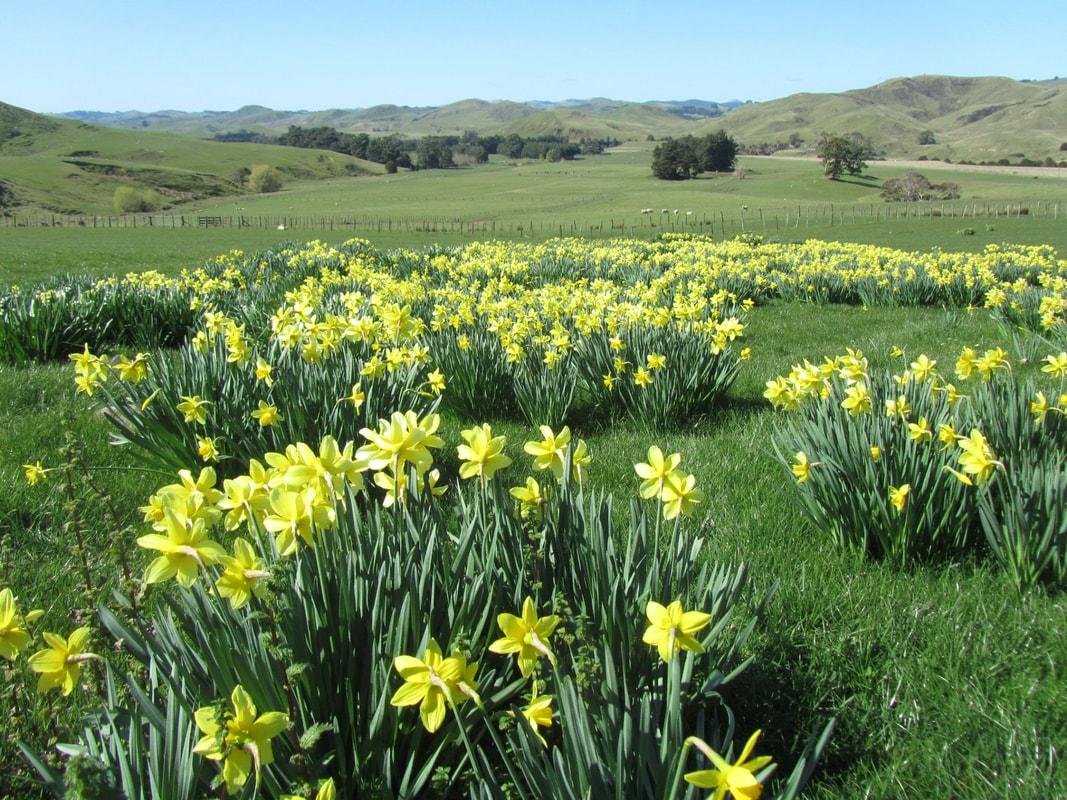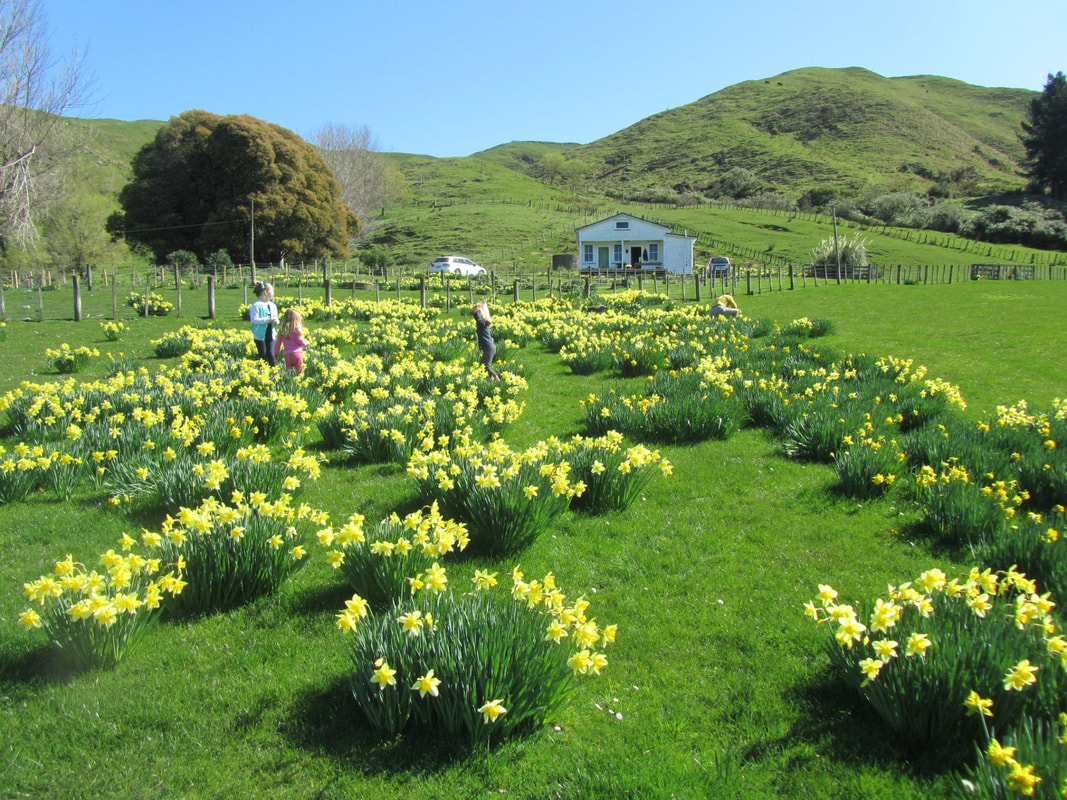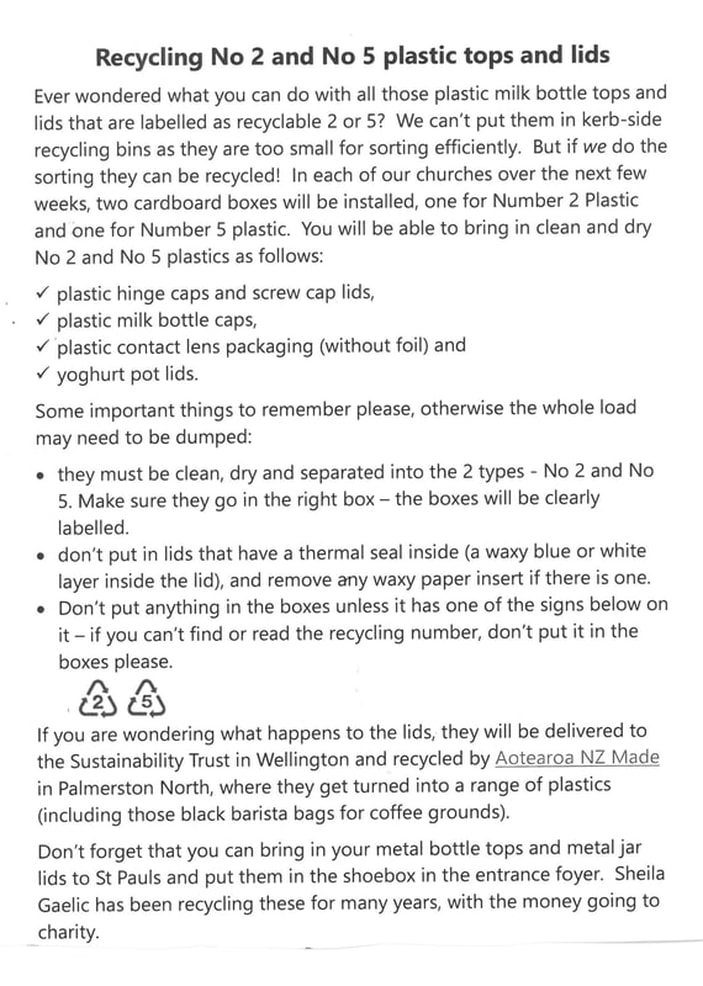September 3-October 4 is observed as an Ecumenical Season of Creation. An opportunity for Christians everywhere to focus on God’s mandate to humanity to be Kaitiaki or caretakers of creation and for us to review what we can do to help conserve and care for our environment in line with the fifth mark of mission of the Anglican Communion:
To strive to safeguard the integrity of creation, and sustain and renew the life of the earth
As we consider creation and God’s call for us as stewards of the earth, what does it mean to carry our cross in this part of our discipleship?. What do we need to be willing to sacrifice? From letting go of self- centredness and our tendency to prefer convenience and ease to actually serve the welfare of the earth and its inhabitants. From the smallest actions such as tuning our ears to hear to the cry of the earth to sacrificially choosing to place our money in environmentally ethical investments, though it they may not yield as much profit- there are so many different ways we can count the cost, making sacrifices to see creation flourish, Some suggestions might be; taking public transport instead of a personal car, moving away from fossil fuels, choosing not to buy new, reducing our waste, refusing plastic where we can. Here some parishioners share some of the ways in which they are enabling creation to flourish.
To strive to safeguard the integrity of creation, and sustain and renew the life of the earth
As we consider creation and God’s call for us as stewards of the earth, what does it mean to carry our cross in this part of our discipleship?. What do we need to be willing to sacrifice? From letting go of self- centredness and our tendency to prefer convenience and ease to actually serve the welfare of the earth and its inhabitants. From the smallest actions such as tuning our ears to hear to the cry of the earth to sacrificially choosing to place our money in environmentally ethical investments, though it they may not yield as much profit- there are so many different ways we can count the cost, making sacrifices to see creation flourish, Some suggestions might be; taking public transport instead of a personal car, moving away from fossil fuels, choosing not to buy new, reducing our waste, refusing plastic where we can. Here some parishioners share some of the ways in which they are enabling creation to flourish.
Caring for Creation – Parishioner Tips and Tricks 2023
Encouraging native birds, lizards and insects in your garden
Growing your own vegetables
Having an efficient wood-burner provides both warmth and resilience during electricity outages
Minimising waste flows to landfill – reduce, reuse, recycle and rot (i.e., compost)
Saving Water in Kapiti over the years
- Grow nectar and berry-bearing garden shrubs that are loved by birds. These ones grow well in our garden (clay soil and very exposed to the wind), and don’t grow too big. Some of them are also useful for gecko and skinks:
- Native shrubs like kaka beak (Clianthus), Stephens Island kowhai for nectar in winter. Twiggy coprosmas like C. areolate, C. propinqua and C. rhamnoides for berries (and they make good gecko habitat). For native bees and butterflies, try flowering hebes.
- Introduced plants like bottlebrush, Chinese lanterns (Abutilon), single or semi-double camellias like “Sugar and Spice”, and shrub grevilleas for nectar.
- Skinks like places to bask in the sun near crevices where they can run away from birds and cats. A pile of rocks or logs can help.
- Some introduced plants can become invasive in the bush, so check before planting, especially if they have berries/fruit - as birds will likely spread them (the Weedbusters guide for Wellington is a big help - online here: wellington ). I have had to dig out some plants that I planted, when I found out they could invade the bush.
Growing your own vegetables
- We always had a productive vegetable garden, and bottled and froze. We grew the veggies that like our soil type - sand!
Having an efficient wood-burner provides both warmth and resilience during electricity outages
- We have a wood-burner that we can warm food on or cook in a frying pan, as we discovered when we took part in a weekend without electricity in 2015.
- We have always had one family car as one of us walked to work. We really like carpooling. We now own a Toyota Aqua hybrid car.
- We love our little EV. it's 62kw so we can travel about 400ks in it. Because our house is solar powered, we charge the car through the day and if necessary, we make use of the cheap power between 11pm and 6am. Mind you that depends on sunshine as well. We've done a couple of big trips. The Chargenet app is great. It shows all the chargers in NZ. It shows which ones are in use, which are broken, which charge at 50kw or 25kw. We use that car as our daily car and we do save a lot in petrol costs. Road user charges will come into effect sometime soon, but that's to be expected.
- Carpooling and using public transport when you can helps reduce carbon emissions.
Minimising waste flows to landfill – reduce, reuse, recycle and rot (i.e., compost)
- The plastic bags that mail is delivered in can be washed and reused to put food in freezer.
- Waikanae bookshop will take empty ink cartridges used in the printer and refill them.
Saving Water in Kapiti over the years
- We as a family have been aware of water use since we moved here in 1971. We had a 5000-gallon water tank, using the water from the roof of our school house. We had a bore, like many other ratepayers, and so we had a black loo bowl as the bore water had so much iron from the sand! We had the 'if it's yellow let it mellow' policy.
Terry & Irene Parminter
|
Jill Lane Talking Compost
|
|
|
|



